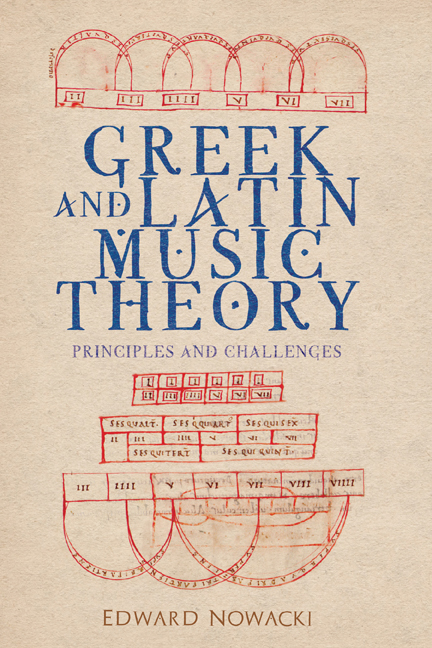15 - Idealist and Empirical Perspectives in Theories of the Ecclesiastical Modes
Published online by Cambridge University Press: 14 August 2020
Summary
To students of the history of theory, it may seem a quibble to find fault with Harold Powers's trenchant descriptions of medieval and modern theories of the ecclesiastical modes. He characterizes the medieval one, which he calls indigenous, as placing the emphasis on mode as a closed system of classification based on the four finals and their mutually exclusive intervallic environments. It is aptly epitomized in the sentence from the anonymous Dialogus formerly attributed to Odo of Cluny from around the year 1000: “A tone or mode is a rule which distinguishes every chant in its final.” Powers characterizes modern theories, on the other hand, as paying equal or greater attention to melodic gestalt, figural habits, and the distribution of the notes over their spatial and temporal range. To be sure, he acknowledges that medieval theorists reveal a certain empirical disposition when they subdivide antiphonal chants into differentia classes. But the criteria for that classification were limited to the brief opening figure of each tune and hardly touched other aspects of modal identity at all. On balance, Powers seems to hold the view that theorists of the Middle Ages, when they theorized about the modes, favored the rationalist approach and neglected the empirical perspectives that have so dominated modal analysis since the twentieth century. He raises a fundamental question. When modern chant scholars perform modal analysis, discovering, for example, chains of conjunct thirds, secondary tone centers, and type-identifying motives, are they practicing a kind of nonnative descriptive discipline that medieval theorists would not recognize?
This question, historically contextualized, is an instance of the timeless opposition between deductive and inductive reasoning. As such, it lies at the very heart of what we do as theorists. It is the basis, for example, of the question whether Schenkerian Ursätze are a priori hypotheses from which concrete examples are generated by progressive elaboration (Auskomponierung), or generalizations derived by progressive reduction from the empirical details of the musical surface, or some combination of both. And it underlies almost all music theory pedagogy, in which authors prefer to make up ideal examples of various theoretical categories (e.g., a first-species counterpoint, a deceptive cadence, etc.), but then validate their constructions by finding cases in the repertory that exemplify, or at least approximate them. In epistemological terms the former approach operates like predictions deduced from hypotheses, the latter like generalities inferred from observation.
- Type
- Chapter
- Information
- Greek and Latin Music TheoryPrinciples and Challenges, pp. 162 - 170Publisher: Boydell & BrewerPrint publication year: 2020



